 Republican has broad appeal across political spectrum
Republican has broad appeal across political spectrum
Volume 33 No. 4 | June 23, 2021
By Pat McFerron, President
Cole Hargrave Snodgrass & Associate
![]() @McFerron
@McFerron
Our recent poll of 400 registered voters in the city of Oklahoma City shows Mayor David Holt is well-known, well-liked, and poised for reelection in February of 2022. Even in a hyper-partisan environment (see Sooner Survey Volume 33 No. 2 “The Partisan Virus”), most Oklahoma City voters appear to be brushing those issues to the side when it comes to their local municipal government.
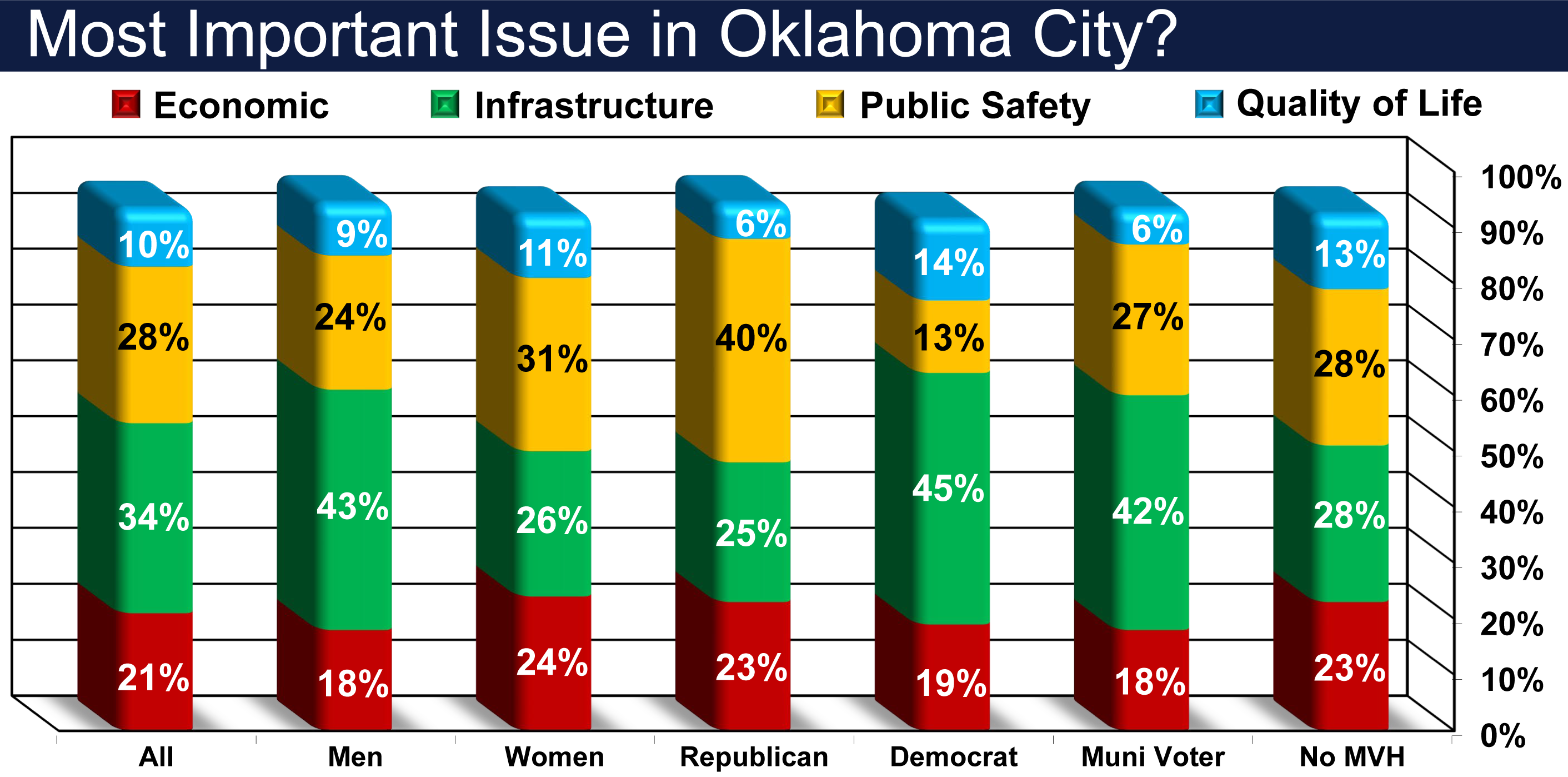
David Holt is very well-known among Oklahoma City voters. In fact, 93% recall his name and 71% know enough about him to form an opinion. It is important to note, much of this name recognition has come despite his not having had what would be considered a serious initial election. Not only is Holt’s 56% favorable / 15% unfavorable rating solid, his 30% strongly favorable and only 8% strongly unfavorable rating is impressive. What really sets Holt apart, however, is that he is a +35 among registered Republicans (54% favorable / 19% unfavorable) and a +49 among registered Democrats (61% favorable / 12% unfavorable). In today’s political environment, it is very unusual to see a candidate who is able to draw such support from members of both parties.
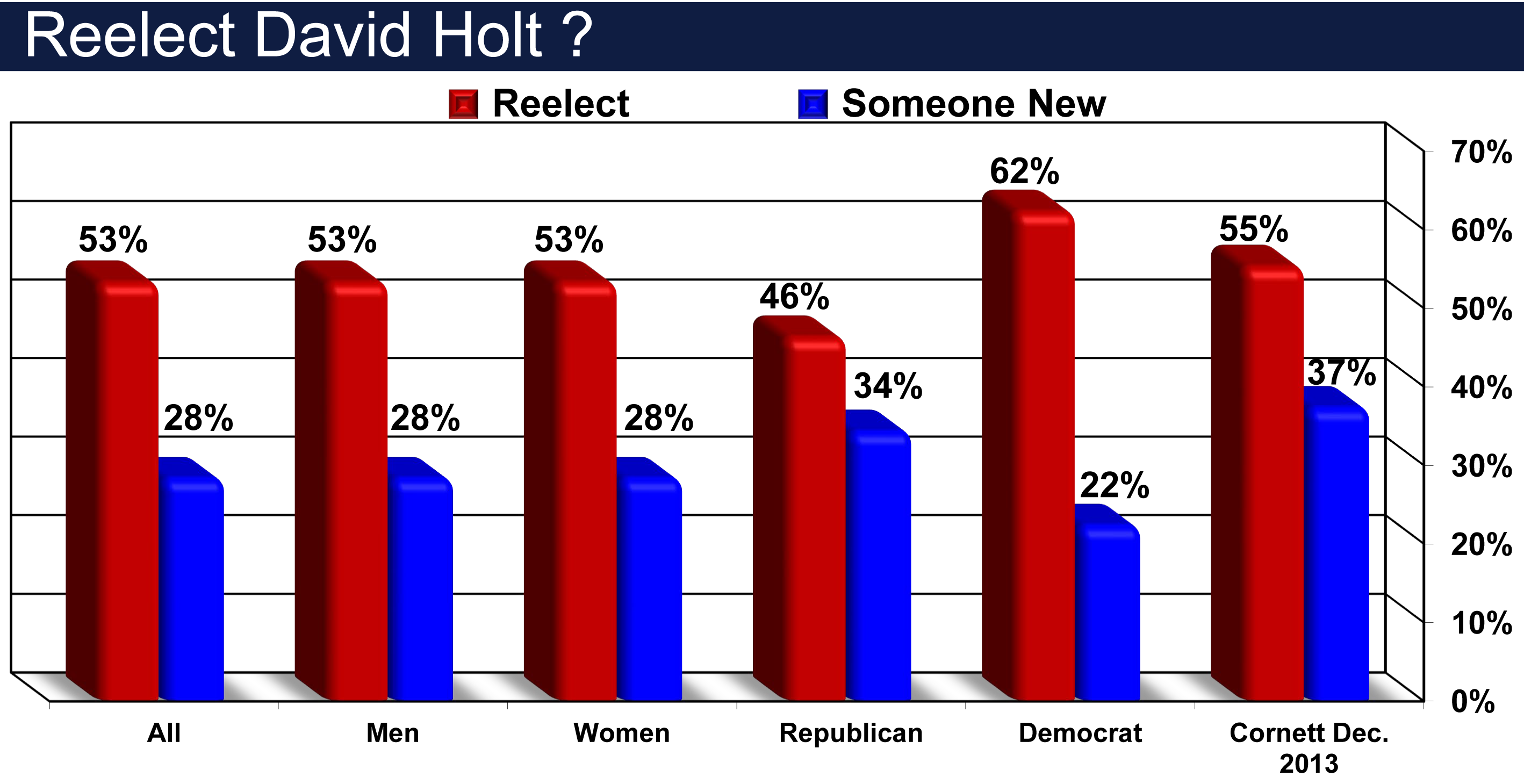 Holt’s ability to unite normally divergent aspects of the city is not relegated only to partisanship. Holt’s favorable rating among men (55% favorable / 16% unfavorable) is similar to his ratings among women (56% favorable / 13% unfavorable). Geographically, Holt is a net positive in each of the city’s eight wards and is a +40 among those under 45 years of age (51% favorable / 11% unfavorable) and a +51 among those over the age of 65 (59% favorable / 8% unfavorable). Holt does exceptionally well among both Facebook (62% favorable / 16% unfavorable) and Twitter (72% favorable /11% unfavorable) users, but still does well among the third of voters who don’t use any social media (45% favorable / 13% unfavorable). While Holt does well with voters with household incomes less than $50,000 (47% favorable / 15% unfavorable) and those earning more than $100,000 per annum (58% favorable / 21% unfavorable), his greater strength comes from middle-income voters (61% favorable /13% unfavorable).
Holt’s ability to unite normally divergent aspects of the city is not relegated only to partisanship. Holt’s favorable rating among men (55% favorable / 16% unfavorable) is similar to his ratings among women (56% favorable / 13% unfavorable). Geographically, Holt is a net positive in each of the city’s eight wards and is a +40 among those under 45 years of age (51% favorable / 11% unfavorable) and a +51 among those over the age of 65 (59% favorable / 8% unfavorable). Holt does exceptionally well among both Facebook (62% favorable / 16% unfavorable) and Twitter (72% favorable /11% unfavorable) users, but still does well among the third of voters who don’t use any social media (45% favorable / 13% unfavorable). While Holt does well with voters with household incomes less than $50,000 (47% favorable / 15% unfavorable) and those earning more than $100,000 per annum (58% favorable / 21% unfavorable), his greater strength comes from middle-income voters (61% favorable /13% unfavorable).
What makes Holt the strongest, however, is his solid performance among those who have voted in recent municipal elections. Among those who have voted in any of the three most recent stand-alone city elections, Holt is a 64% favorable and only 13% unfavorable. This increases to 71% favorable among those who have voted in two of these elections. These voters will not need a great deal of motivation to participate in a mayoral election and they are solidly behind Holt.
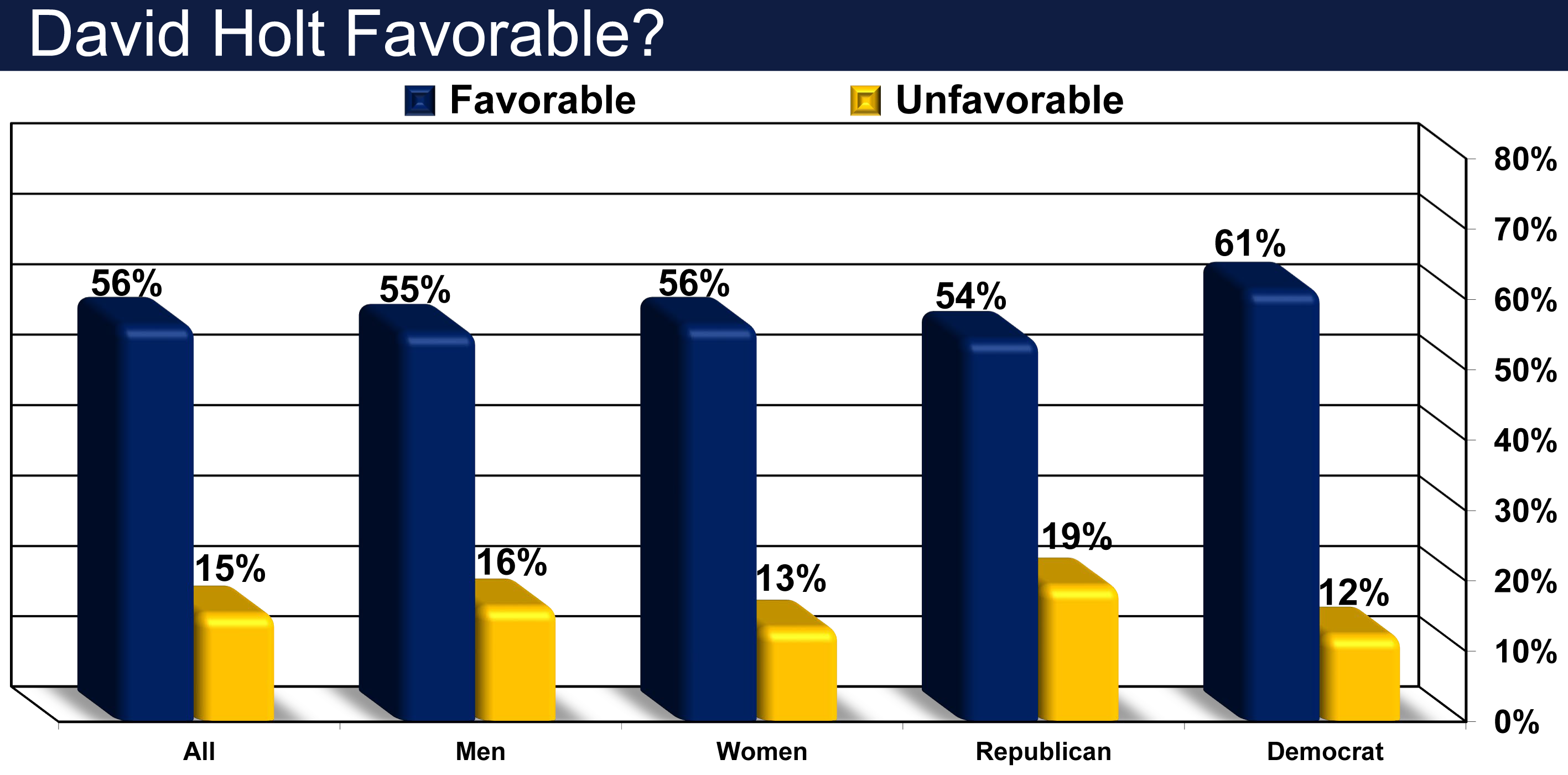
Holt’s strength is also seen in his reelect number. Today, before any campaign has launched, more than half of the voters are already committed to reelecting Holt. Holt’s reelect at 53% is incredibly high especially when considering that any incumbent over 40% reelect tends to be considered safe. For comparison to another city election, heading into the 2014 election in which he garnered 65.7% of the vote against a well-funded opponent, Mick Cornett’s mayoral reelect was 55%.
Holt’s reelect is high among Republicans (46%) and Democrats (62%) and is high among voters interested in the top two issue clusters of infrastructure (59%) and public safety (50%). Among those who have voted in at least one of the last three citywide elections, Holt’s reelect stands at a phenomenal 60%.
Only 28% of voters say they would replace Holt with someone new. This percentage is composed of those on the far left and right and it is unfathomable that any figure could emerge to unite these two divergent groups.
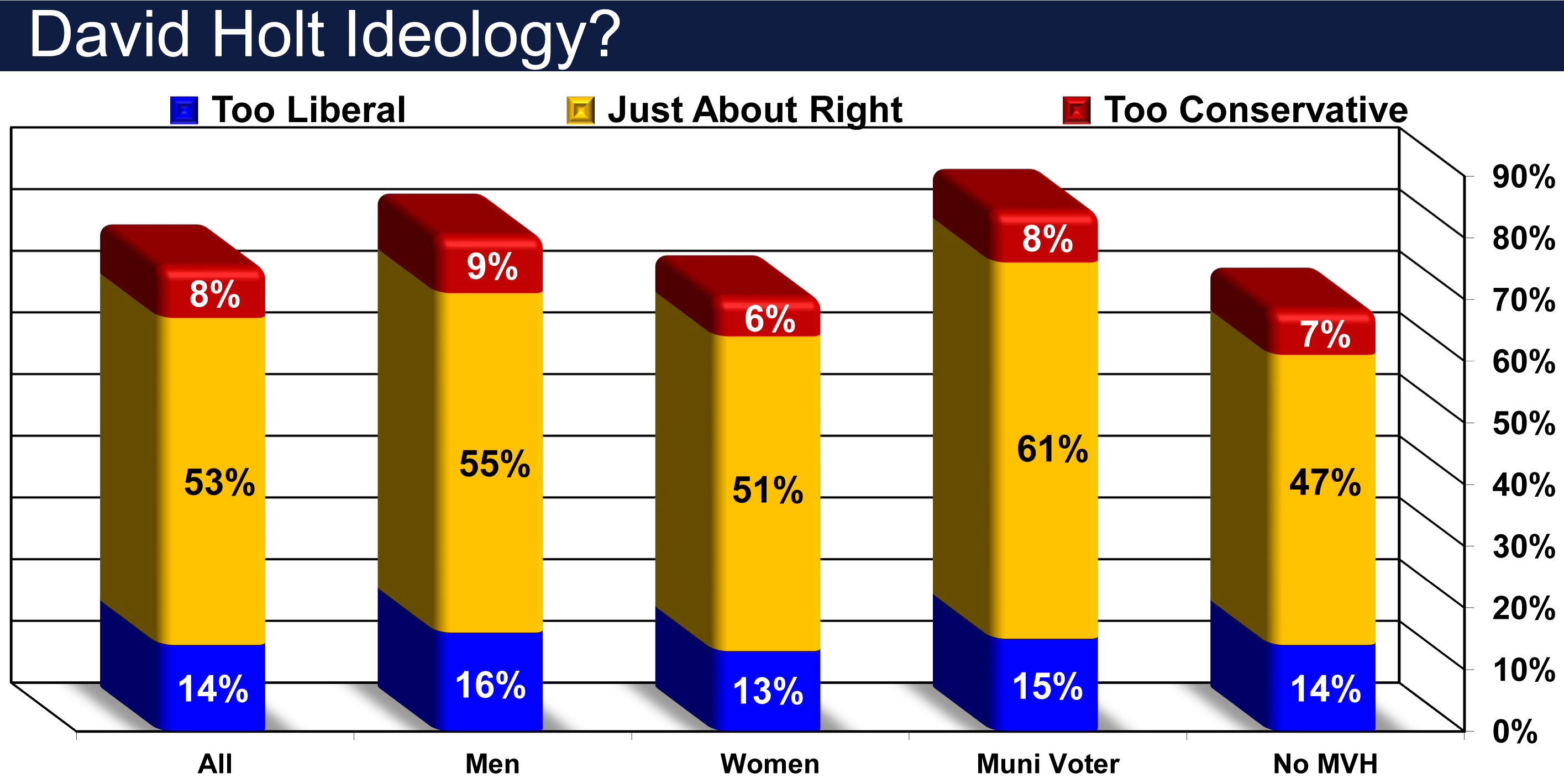
Part of the reason we see such a lack of division along ideological lines and the mayor is because the issues voters want city government to address are much different than what we see on the national stage. More than a third of the city’s voters think the primary focus of the government should be addressing infrastructure issues and 28% want a focus on public safety. We do see partisan differences on this issue with 40% of Republicans wanting the focus on public safety while only 13% of Democrats list that as their top concern. Democrats are more likely to focus on infrastructure (45% compared to 25% among Republicans).
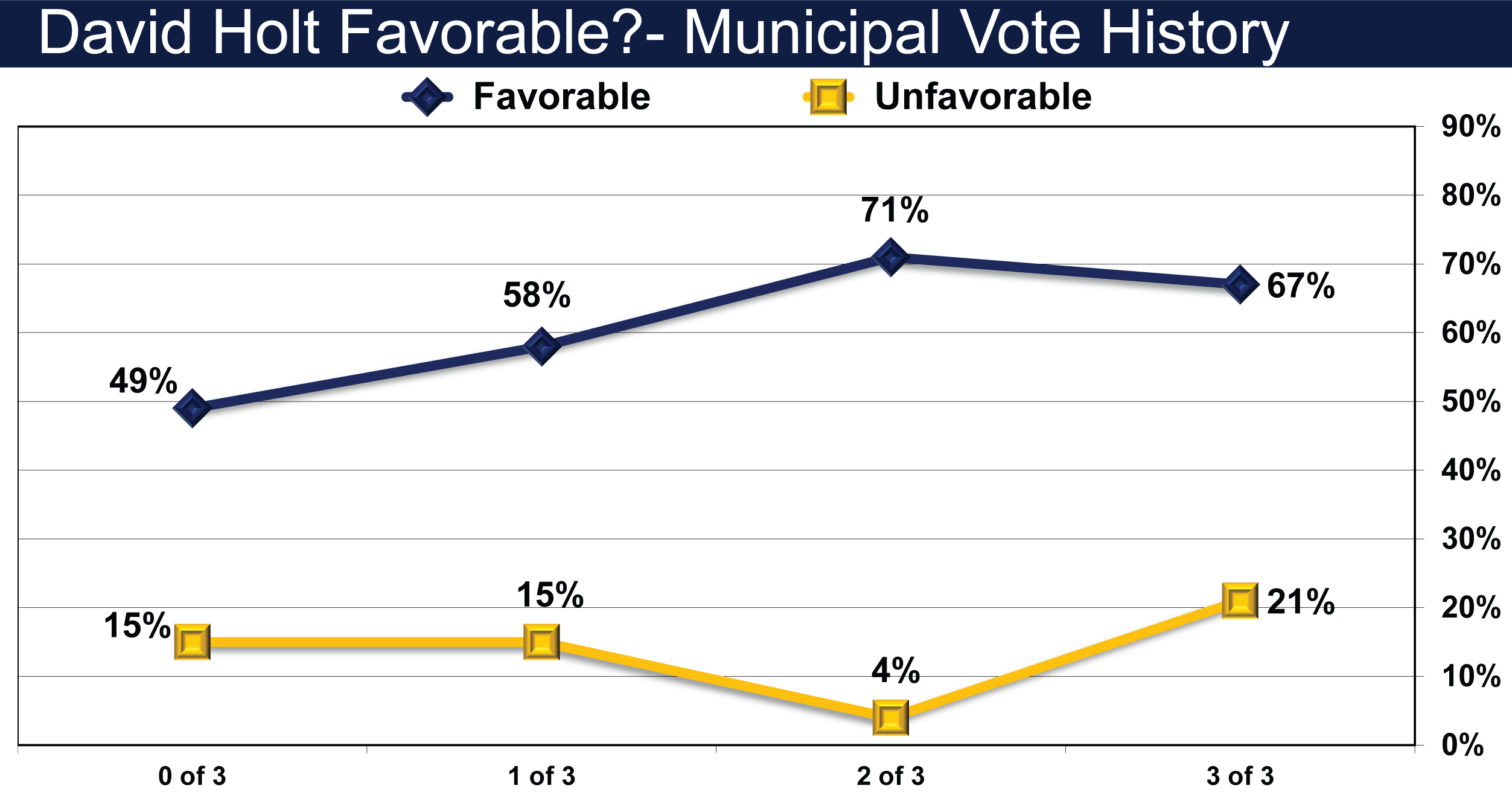
Holt’s ability to unite those in the middle of the ideological spectrum is also evident when voters are asked to rate Holt’s ideology. More than half of the voters believe Holt’s ideology is “just about right” (53%) while fewer than one in seven think he is too liberal (14%) and one in 12 say he is too conservative (8%). Additionally, the 26% who cannot rate Holt’s ideology are clearly not offended by their understanding of him. Among those with a history of voting in municipal elections, 61% think Holt’s ideology is about right.
Coming out of Covid and a hyper-partisan national environment, it is rare to find any political figure without scars. David Holt appears to be one. Holt is in as strong of a reelect position as was Cornett heading into his 2014 reelection. Holt is not without detractors, but they come from both extremes of the ideological spectrum and, much like was seen in Tulsa’s 2020 mayoral election, they will not be able to unite. Even if they did, Holt’s strength among municipal voters and the larger middle would make him a heavy favorite to win reelection. ♦
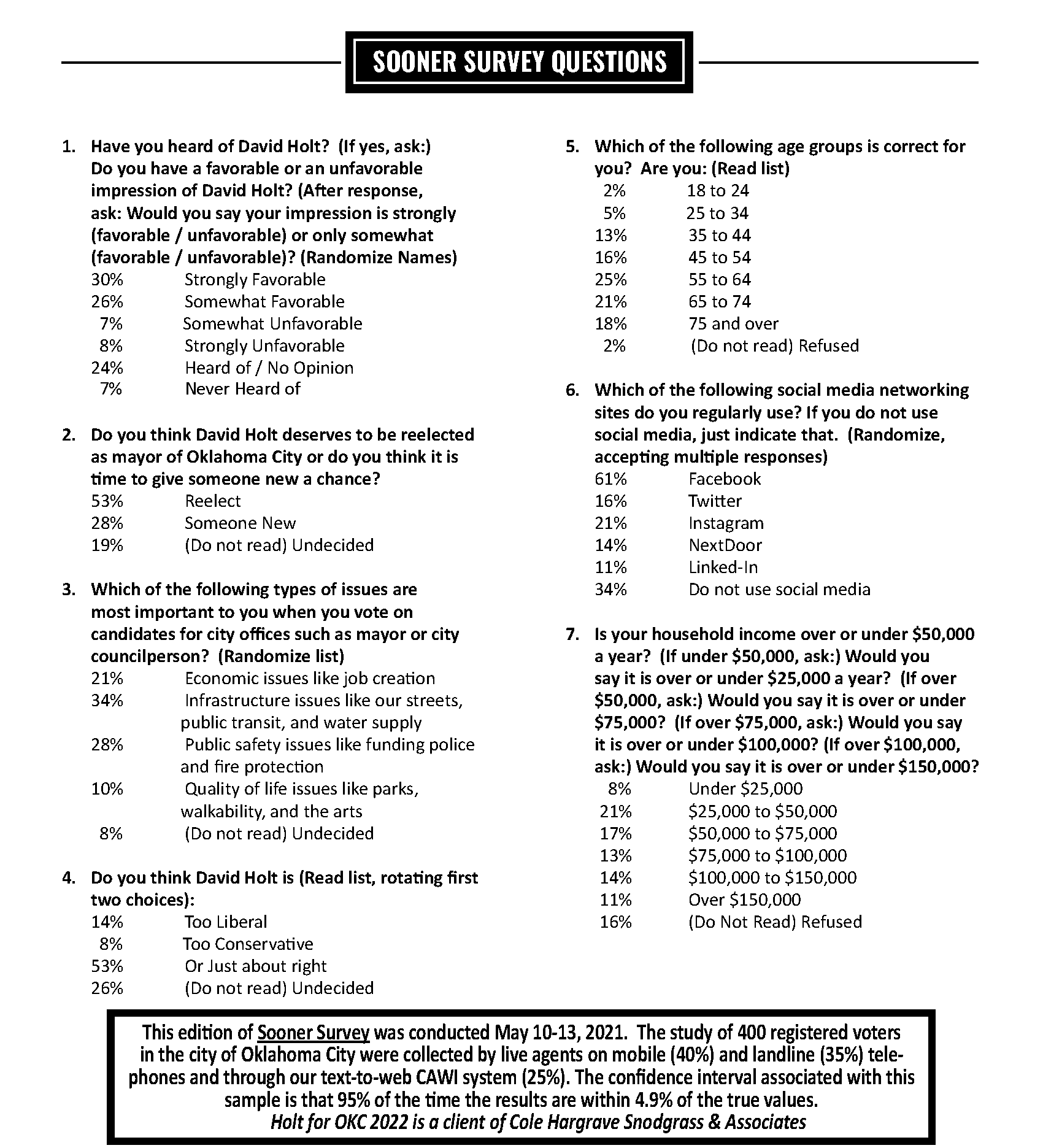


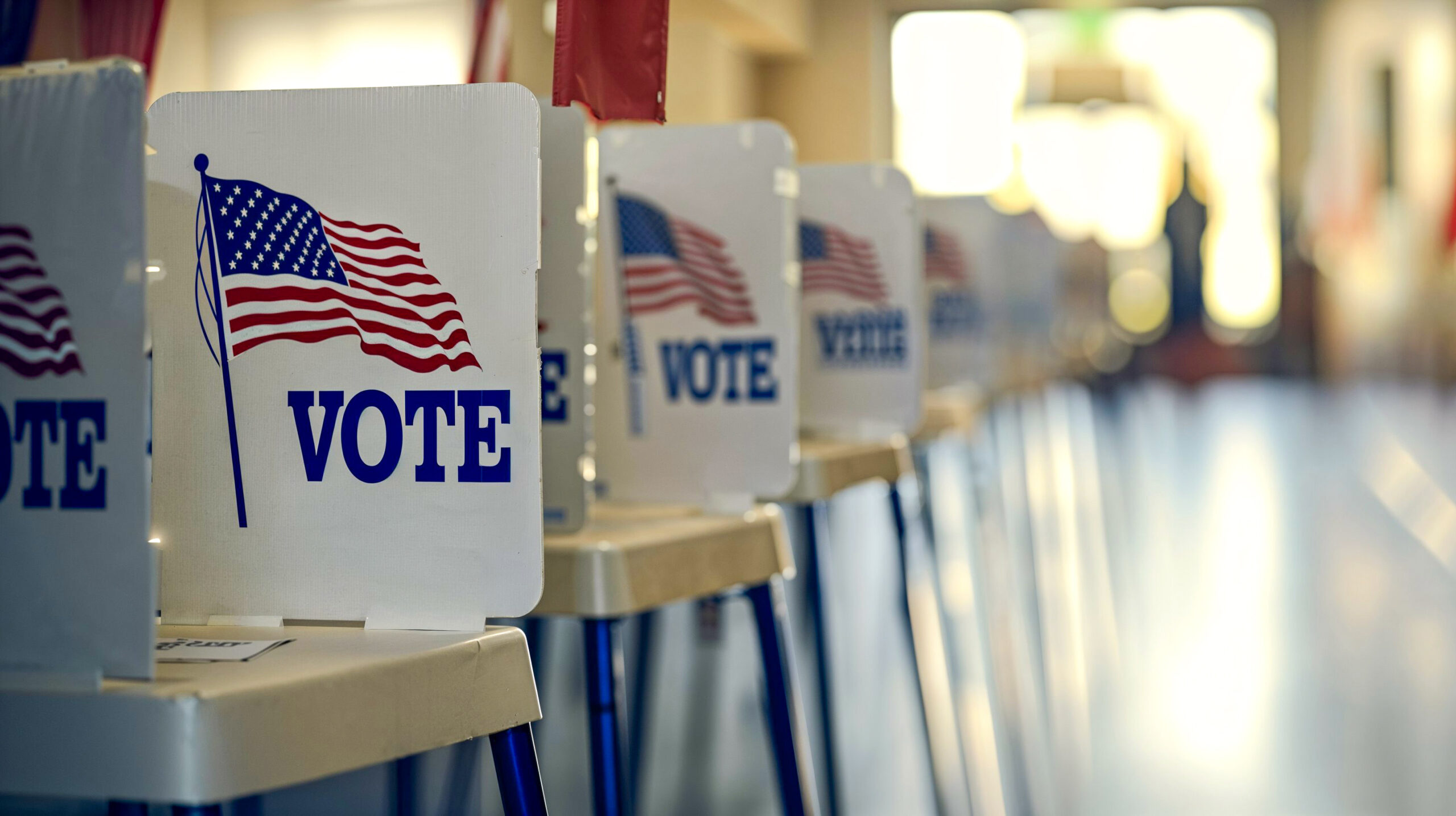
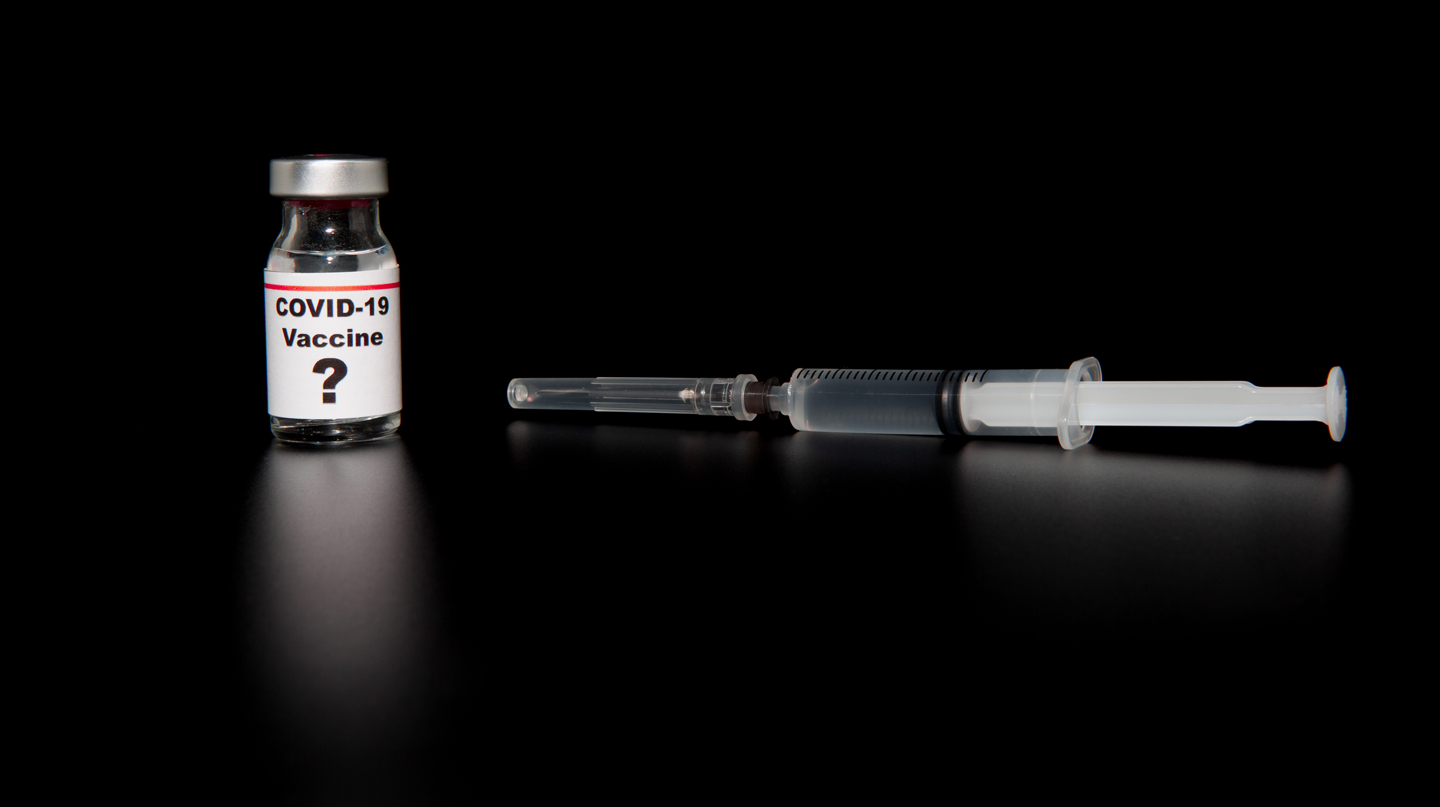
Recent Comments